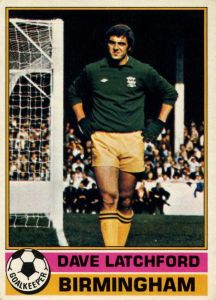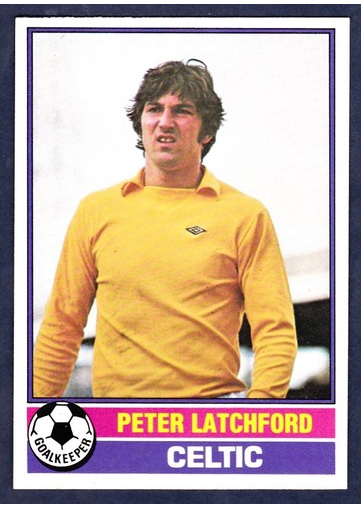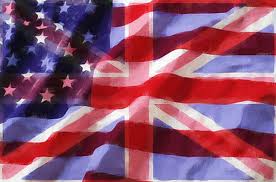
Life liberty and the pursuit of the onside ball. We might well have come to USA seeking freedom from European persecutions of one sort or another. If you believe some of the latter day New York Times best seller seekers we may well have come here seeking to practice persecutions of one sort or another without any European hinderence. We might like to walk around thinking 236 years is more than enough time added on for us to have shaped a new and separate identity but the call of the ball is strong, the referee of eternity’s whistle echoes through the empty soccer stadiums of our hearts.
It might take little more than signing junior up to play some non-combatant, harmless, socially sanitized soccer for all those European demons to come howling out of the deserted stands, pouring from the ghostly mouths of millions of fallen fans, thousands of failed pundits. Xenophobia – fear of the other. Religious schism, my divine formation is the one true formation. Political dissent and unAmerican activity facing off for a quick 5-a-side kick to the death. Am I reading too much into it you ask? Are you, gentle reader, guardian of refereeing for the team, by the team, and of the team, reading too little? Let’s kick off and see what the first half brings. Heads you win, tails I lose. Fair enough? So, away we go …

WHY SO MANY PARENTS SIGN JUNIOR UP FOR SOCCER
Most parents, casting around for junior’s first organized sporting activity take a cursory look at soccer and see a nice, safe-looking game that doesn’t seem to involve much dangerous physical contact. This is especially appealing to boomers. More on the reality of that supposed safety of the game perception later. In addition, in the current economic climate with a good deal of house values underwater and a lot of retirement plans going the way of the dinosaur, they also see a game that doesn’t involve masses of expensive equipment. They might have heard US women play the game pretty well and it’s conceivable they vaguely know who David Beckham is, so they sign junior up for soccer.
Kitty is a suburban Seattle mom with two young daughters. Whereas their lives are not majorly shaped by soccer, the game does have some impact on their family. She told me her husband occasionally goes to MLS Seattle Sounders games “but it’s mostly just an excuse to hang out with friends.” However, he is also head coach of a group 7 year olds that includes their daughter Riley.
“Last year, we had trouble scrounging up volunteers, so he was the only coach. But this year, two other dads have stepped in. Both of them are European (Dutch and German) and take the game more seriously than the other parents. I think this Fall will be interesting as the girls will be challenged a bit more than last year. Spacing out and picking daisies whilst goal tending may be frowned upon.”
She also has perfectly valid parenting reasons for enrolling junior in soccer, reasons now backed up by a solid amount of hard data. Kitty puts it this way:
“Girls who play team sports are less likely to get in trouble. So for me, keeping the kid healthy and out of jail is my main reason for getting involved in soccer.”
Such are the inroads the beautiful game has made in recent years into the American mainstream, Kitty also has her own interest in soccer, “the only way that professional soccer impacts me is flipping through a magazine to see Becks in an underwear ad. For that brief, no pun intended, moment before I turn the page, I am a huge soccer fan.”
To be continued …
Tag Archives: Birmingham
THE LATCHFORD BROTHERS
 When I was ten-years-old at Broadmeadow Junior School in Birmingham, we had a teacher who thought Irish country dancing would help our footwork on the soccer field. I still remember lining up in the dusty school hall, while the school record player filled the air with the skirl of scratchy mandolins and fiddles. Standing in a line, like some prehistoric version of Riverdance, the teacher exhorted us to get up on our toes and start kicking.
When I was ten-years-old at Broadmeadow Junior School in Birmingham, we had a teacher who thought Irish country dancing would help our footwork on the soccer field. I still remember lining up in the dusty school hall, while the school record player filled the air with the skirl of scratchy mandolins and fiddles. Standing in a line, like some prehistoric version of Riverdance, the teacher exhorted us to get up on our toes and start kicking.
It seemed to me that over that endless half hour or so the entire school filed past the entrance to the assembly hall just so they could howl with laughter at our attempted jigging. I remember one of the jeerers in particular. He was a year older than me, about as tall, but built like the proverbial brick outhouse. His name was Bob Latchford. Bob was not only no fan of Irish country dancing, he was the only player in the school who definitely didn’t need it.
During morning and afternoon recess, we played in the playground with a tennis ball. This was because we weren’t allowed a real soccer ball in case we broke the school windows. This stupid rule probably did more to develop our ball control than any amount of hopping up and down to fol-de-riddle-de-bloody-diddly-doo.
Everyone wanted to be on Bob’s team, because Bob’s team always won. Unlike me, who had a tendency to trip over my own lanky legs, kick myself in the foot and eat asphalt, Bob had skills. Bob would waltz the tennis ball round the yard and if you got in his way he’d flatten you. He was the complete player.
Bob Latchford, born in 1951, was an English former association football center forward. He made more than 500 appearances in the Football League, playing for Birmingham City, Everton, Swansea City, and Coventry City in the First Division, and won 12 full caps for England.
“I suppose people will remember me for my heading ability but I could score with either foot too.” – Bob Latchford
Bob had two brothers, Dave who was a couple of years older than him, and Peter who was a year younger.
 Dave Latchford (born 9 April 1949) is an English former footballer who made 208 appearances in the Football League and 8 in the Scottish League playing as a goalkeeper.
Dave Latchford (born 9 April 1949) is an English former footballer who made 208 appearances in the Football League and 8 in the Scottish League playing as a goalkeeper.
With these three at the same school it’s a bloody wonder any of the rest of got a look in. Okay, fair does, compared to them we didn’t!
 Born in Birmingham in 1952, Peter Latchford started his career at West Bromwich Albion and signed for Celtic F.C. for £25,000 in 1975 after a spell on loan. He made over 270 appearances for Celtic in the late 1970s and early 1980s, winning 2 League Championships and 3 Scottish Cups. He is now a goalkeeping coach and has worked in this capacity for Forfar Athletic, Clyde and Hearts. He is currently goalkeeping coach at Dumfries club Queen of the South. His spell at Queens included the 2007/08 season run to the final of the Scottish Cup.
Born in Birmingham in 1952, Peter Latchford started his career at West Bromwich Albion and signed for Celtic F.C. for £25,000 in 1975 after a spell on loan. He made over 270 appearances for Celtic in the late 1970s and early 1980s, winning 2 League Championships and 3 Scottish Cups. He is now a goalkeeping coach and has worked in this capacity for Forfar Athletic, Clyde and Hearts. He is currently goalkeeping coach at Dumfries club Queen of the South. His spell at Queens included the 2007/08 season run to the final of the Scottish Cup.
Anybody got a tennis ball? I fancy a bit of a kick about!
JUST ANOTHER GAME (part 2)

In a land far, far away, before the Internet…
Aston Villa v Blackburn Rovers
Even though he had decided to allow himself this minor indulgence in “home” culture, and even though the part of him that had grown up under leaden skies found the commercial breaks intrusive almost to the point of being surreal, a larger part of him still found the blaring sales pitches to be glamorous. He loved his new home, loved it with all the fervor of a turn-of-the-century immigrant fleeing to the arms of Liberty.
Whenever he encountered dissatisfaction from Natural Born Americans to the latest shape of their country he would make a point of trying to reopen their eyes to the incredible good fortune that was their accident of birth.
When he was a child it seemed his mother was constantly urging him to eat usually boiled green stuff based on her assertion that there were millions of poor souls starving in India. Well now there were people starving in England. This fact was even harder to convey. A great many Americans carried an even more idealized image of life in Britain than did the average Englishman of life in the USA.
Great slab of pepperoni-laden slabs of pizza were now being pulled across the screen, trailing bungee chords of cheese into ecstatic mouths. He reached for a ham sandwich, good honest boiled York ham on doorstep-thick slices of white bread, liberally smeared with Ye Olde English Sinus Searing Mustard. That’s what the Guinness was for, to soothe the pallet, as well as the soul.
The commercials released him from any further desire to buy, eat, or improve and there followed a brief, dizzying series of aerial shots of some of the grimmer parts of Birmingham. And then the camera swooped down onto the drizzle-swept field for the kick-off. Aston Villa, placed just above the middle of the table, were at home to Blackburn Rovers, top of the table, scuttling three points (and a sizeable goal difference) ahead of Manchester United, “his” team. Oh, if only they were his team … he would a multi-millionaire be.
England in these her most trying economic times was it seemed still managing to fall not all that far behind the USA when it came to paying sports stars exorbitant sums of money. But when you looked at the social function they fulfilled in terms of diverting potentially riotous competitive urges in generally less destructive directions they were worth the money. Even if there were still occasional hooligan riots that left rival fans dead in pub parking lots.
Villa were desperately trying to hold the ball safely in midfield, looking for thus far invisible chinks in the Blackburn defense. A good deal of physical play was for the most part being overlooked by the referee, at least until McGrath “forsook the ball entirely” and decided to use Ripleys head in its place. That phrase from the commentator “forsook the ball entirely” alerted him to another cultural dissimilarity.
He had, at least up until the players strike, tried to love baseball. His first trip to the Oakland Coliseum had astonished him. Here were people of all races, all ages joined to celebrate an occasion that was at the wellspring of the American heart. He almost felt as if he were in church; for him the experience verged on the religious. And once the game was over there was no mean spirited rampage by the losing fans; there were no fights in the stands. Maybe cricket was dead after all, maybe his countrymen had forgotten how to play the game”. Perhaps English football, soccer, had once been the favored sport of a society far less obsessed with winning and violence. In more recent years it seemed to him that the English had become petty much only interested in the violence part, thank you all the same Prime Minister Major.
“It’s not whether you win, but how you play the game” had in twenty-five short years become “Not only is it whether you win, it’ also how dirty you can get away with winning.”
to be continued …
Excerpted from Just Another Game by Luke James published in Aethlon: The Journal of Sport Literature, Dept. of English, East Tennessee State University (1997)
JUST ANOTHER GAME (part one)

In a world before the Internet …
The glass that the Guinness was in was wrong. The Guinness was Guinness all right, but the shape and size of the glass were slightly different. Still and all, it was the nearest thing to a pub pint mug that he’d been able to find, stuck between the novelty cocktail glasses and the genuine, plastic champagne glasses on a lower shelf at the back of Beverages ‘R’ Us.
He found the game right after a sea bass fishing special, the rolling deep rolled right into a TV producer’s idea of British fanfare music over a special effects montage of flashing boots, diving headers, balls rocketing into the backs of multiple nets. Feeling slightly dizzy he reached for his pint and caught a cameraman’s accidental ghost flash of the outside of the stadium. Villa Park. In Birmingham. And that ain’t Alabammy Sammy. Rather, that’s where the Men of the Midlands drink gallons of Brew XI, smoke Park Drive plain,, and take no guff from anyone about anything in general and the claret and blue of Aston Villa in particular. Beer, cigarettes and football – the three working class comforts – fought for as hard, and guarded as jealously, as any trade union. From the assembly lines at the British Leyland plant to the saloon bar of the King George V.
He spent one afternoon, at the age of fourteen, glued to the 1966 World Cup semi-final game between England and Portugal, Charlton .v. Eusebio, the Lion .v. the Panther, locked with his mother and kid brother in a tiny bubble of perfect patriotic fervor. Only one of millions of such bubbles scattered that day throughout the green, grey, and unpleasant land, all held within the loving embrace of a nation-sized bubble. Except that is for his father, who was out embracing the oily attempted salvation of their fourteen-year-old car, trying to coax another trouble-free 10,000 miles from an engine that barely had any of its original parts. His father’s particular form of escape. Down at the dead end of their street, legs protruding from beneath the front end of the black and chrome car, his shoes scuffed, his trousers rucked and oil stained, lay his father, a bone white hin exposed to an uncaring and heavy sky.
And after Eusebio had ghosted between the stout oak hearts of the English defense, flowing like a black ribbon to strike the ball into the back of the net, it was his duty as eldest son to carry the bad news to his father. He moved slowly up the deserted street. Every street in every city in the land was deserted at that moment. He was the only soul stirring in all of England and he felt the dread weight of his progress along that sunless street. He dawdled past the bleak, faceless cement of the street’s apartment buildings, hoping he wouldn’t share the fate of the messenger who was executed because of the tidings they bore. Up ahead he saw the car. It looked for a moment as if the vehicle had fallen out of the featureless infinity of the sky to pin his father to the tarmac. When he reached the car he spoke the words almost fearfully, almost apologetically, to the bulls eye holes in the soles of his father’s shoes.
‘Portugal scored Dad.”
There was nothing more to be said. He turned and trudged back to what he prayed was nothing worse than the 1-0 down England had been when he’d left. But then halfway down the street he imagined, could see quite clearly in the dull, grey air before him, Bobby Charlton letting loose a blazing shot from twenty-five – no thirty yards out, a net burster, an equalizer, surely. He ran the last half block home. Three times more that day he carried news of the game to his father’s feet but this time each of the trips were occasions for joy, And, yes there surely was a God in Heaven aand today He was a spitfire pilot and the English were surely the happiest of his children. For the boy’s vision had been played out not once but twice, there on the flickering monotone of their twelve-inch TV set Bobby Charlton had unleashed two rockets, both had found the back of the net, and mighty Portugal lay at England’s feet. It was war in its purest form, without the shitty behavior and the stink of corpses,
The last visit to his father’s legs was with the news that the final whistle had gone and that England had reached the final of the greatest football competition in the world. The World Cup. This news provoked in his father’s legs what he assumed was some brief, celebratory jig. But despite the momentous nature of the occasion he knew that his father would not return to the apartment until either the light went or the engine submitted to his will.
to be continued …
Excerpted from Just Another Game by Luke James published in Aethlon: The Journal of Sport Literature, Dept. of English, East Tennessee State University (1997)
